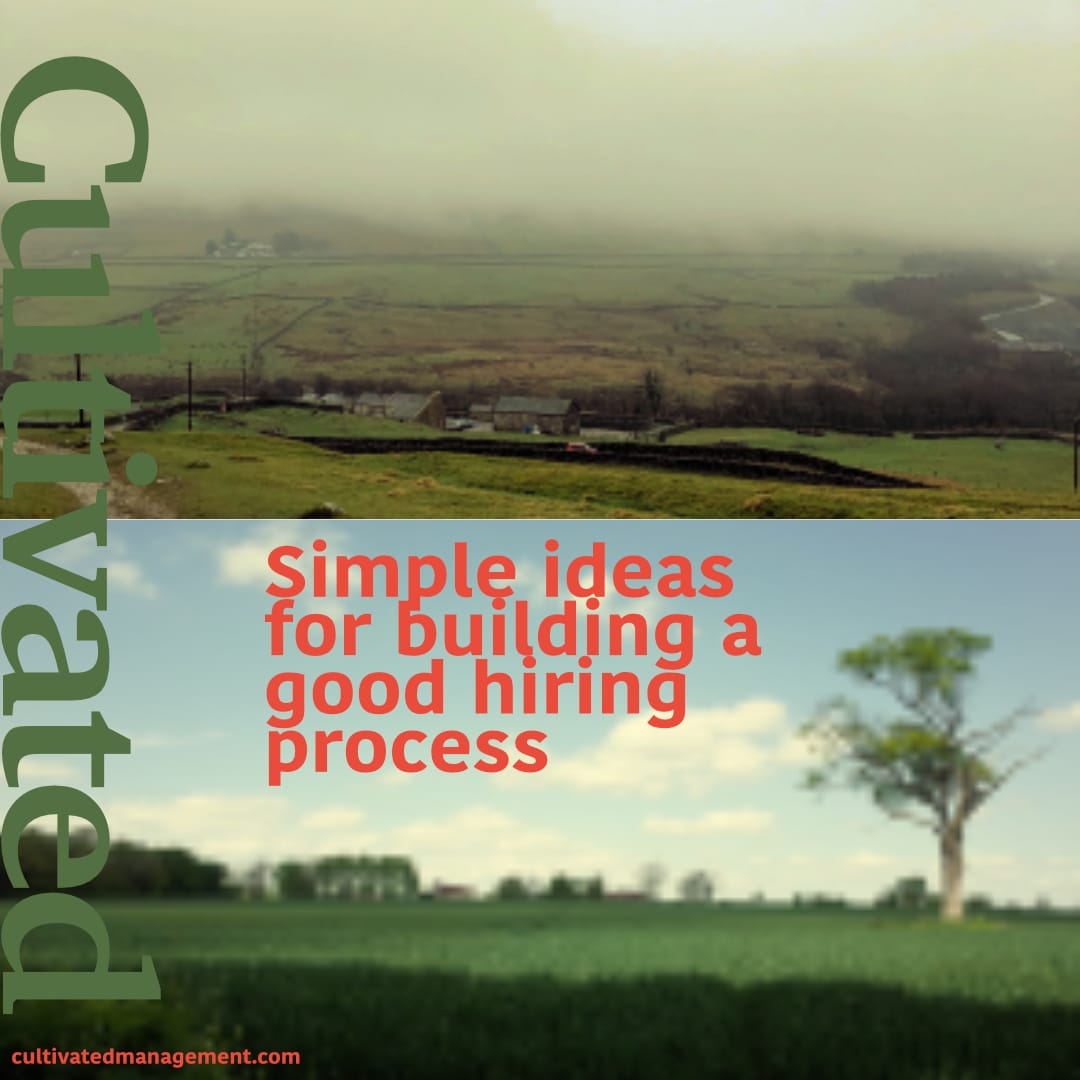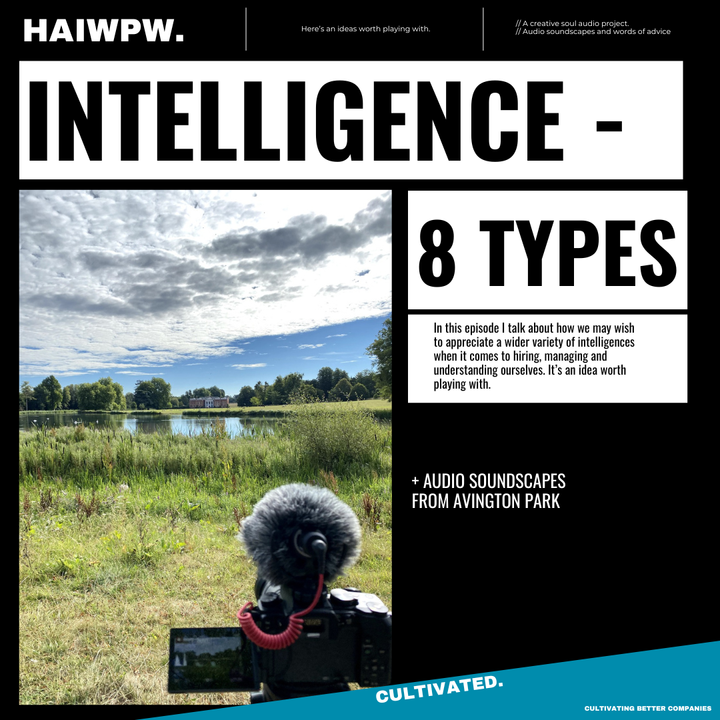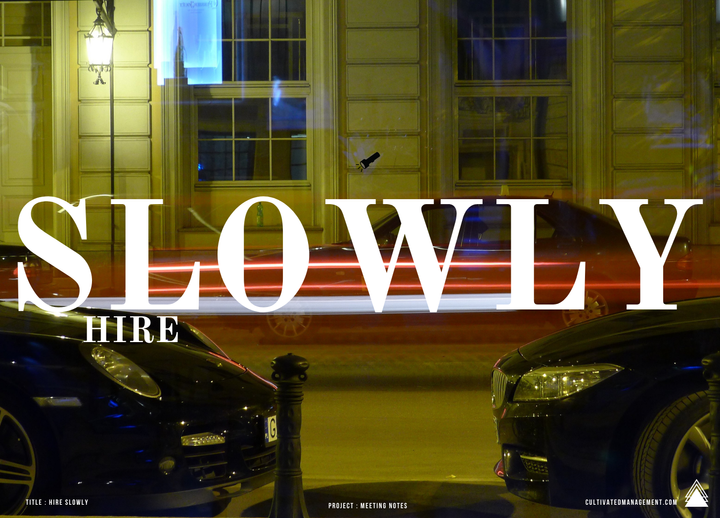Simple ideas for building good hiring processes
In this article I share a few ideas worth playing with around building a good recruitment process

Hiring is probably the most potent strategy you can employ to achieve business success. Surrounding yourself with the right people will make your job easier as a leader or manager.
If you create the right environment, treat people well and hire effectively you'll not only get the right results, but you should also enjoy the journey too.
Hiring typically starts with the job advert. Even if you headhunt or source candidates directly the job advert is still a useful tool.
Job Adverts
Writing compelling job posts and you'll likely get better candidates. Most job adverts are dull, copy and paste kind of affairs asking for unrealistic levels of experience and devoid of character.
There's a clue in the title as to how to approach job adverts in a more affective way - its called an "advert". If we see an advert on the TV, or Social Media, or on a poster - and it's dull, boring and just like every other, we're unlikely to take any action.
It's not quite the same with job adverts as many people are in need of a job and will wade through terrible adverts if they need to, but you can still leverage different thinking to break out and stand out.
Here are some ideas worth playing with.
The Purpose of the Job
Job adverts should explain the purpose of the job.
Why does the job exist?
What problem does the person doing this job solve?
If it's not possible to explain the purpose of the job, it may be you need more clarity about the role. It should be an alarm bell if it's not clear what problem a new hire will be solving for you (or opportunity they will be opening up).
If clarity over the role is not forthcoming then hiring someone will lead to an unclear role and mis-aligned expectations. You could also argue there is no need to add more cost to your business if its not clear what problem the hire will solve.
Use simple language and avoid using jargon
Not everyone will understand business jargon. Maybe they should know jargon given they are applying within the industry, but consider that many companies call the same concept many different terms.
If you don't know for certain that the candidates will know your industry jargon, don't use it. In some industries it's unavoidable but try to simplify the language where you can.
A simple advert, using simple language, shows the candidate that clarity about the role and expectations exists - this is a good thing.
Try not to use obscure terms and language like Rock Star and Legend etc. They may be emotional and impactful but they are mostly useless for clearly explaining the role. Some people like job titles like that, most just want to know what's involved. The top candidates don't care about the role title - they just want to make an impact.
Keep it simple.
Keep it short too. If you cannot explain the job with around 250 - 750 words, it's probably not clear what the candidate is supposed to achieve.
Focus on website user experience
If you're using your own business site to advertise the role then ensure its optimised for mobile experience. Most job sites and job boards are optimised for mobile, sometimes with their own app, so there's little need to worry there.
Many people are using mobile for job searching. It would be a shame for the advert to be found but be unreadable.
Offer a quick way for people to join the talent network (mailing list or social feed) so they can stay informed about future jobs and what it is like to work at the company.
Avoid friction in filling in applications or finding mailing addresses to send their application to. This is especially so if they are on a mobile device.
It should be very simple indeed for candidates to get their CV in front of you.
Compel them with a great advert, make it easy to apply.
Adverts out of the way - now it's all about creating a wow experience.
Focus on candidate experience
From first contact to offer/rejection its important to focus on the candidate.
First impressions matter and candidates will look for ways to confirm their first impressions (either good or bad).
At all points through the candidates journey their needs and wishes should be accommodated where relevant and reasonable. This is important because if someone doesn't get the job it's entirely possible they will still rave about the company. I see this a lot but only if the impression is good.
Your recruitment process communicates a lot about your company processes, structure and setup. Ensure it sends a WOW message.
Good candidates have options - so if the process for applying for your role is tired, slow and complicated, the chances are the best candidates will go somewhere else.
Sell the company
The job application and interview process is a two-way activity. The company are being assessed as much as the candidate is.
Talented people have options and other companies vying for them. Make the process compelling and the experience pleasant and the chances are high they will accept. Treat them with respect.
Train Hiring Managers
All managers/interviewers should know what can and cannot be said in interviews. There are some questions that contravene local laws. Find out what they are and educate managers.
Train managers/interviewers on how to ask good quality behavioural questions. Good questions usually lead to good answers. Poor questions waste time and alienate candidates.
Behavioural and Values related questions are great for interviews, as long as they are targeted around the candidate and the purpose of the role. Far out questions unrelated to the role can waste valuable time.
All hiring managers should be hiring people who resonate with the company values.
It's much easier to find people who share the same set of values than it is to try and mash people with different values together. At the end of the day, people will do what they default to, so find people who's default values and principles are in line with your company's.
Good Process
Try to measure the cycle time (end to end time) of the process from the candidate's application through to first contact to offer/rejection. It doesn't matter what this time is as long as the goal is to improve it. Good people don't hang around.
Put in place filters to filter out those who just want a "job" from those who want a career with you. Phone interviews are the simplest form of this. Exercises and challenges can also work.
Single day interviews should be standard. It's a big ask for many people to take multiple days off to attend interviews. Good people have options and someone else will be doing their interview process in a single day.
Interview with 2 people at all times to avoid group think or individual bias.
I recommend 3 sections to the interview, with 2 different people in each section. That's 6 people from your team; a big commitment but worth it to hire the right people.
I recommend
- Management / Team Fit / Career Expectations / General behavioural questions
- Domain experience / Technical competency etc
- Values / HR) - are they going to be a nightmare to manage and bring into the team?
Be sure the interview still flows when broken in to sections, bring everyone back together for a review after the interview. Of course, invite the right people to interview.
Keep records of the interviews as a matter of good practice and store these against the candidate record for reference, should any disputes or queries arise. It's also generally useful for future reference.
- Who was in it?
- What questions were asked?
- Why did we accept/reject the candidate?
- What happened in the group discussion after the interview?
- What decision was made and on what evidence?
The above ideas should not slow down the process if you are working on reducing the overall cycle time. These ideas should lead to a higher quality, and more suitable, candidate applying, then being filtered through meaning the main interview should be with someone who is already a pretty good fit.
Including many people from your team in the interview is a big ask, but it will avoid biases and it also gives people exposure to interviewing - just be sure to train people to avoid any legal nightmares. Understanding protected characteristics (UK) is a good first step to avoid any problems.
If you put in time and effort to the whole process you will make it a WOW experience for all involved. It will make the process more effective and it will raise the bar of candidate quality.
Hiring the right people first time is worth this cost. It's much cheaper in the long run than rushing the wrong people in and spending time removing them from the business later, or moving them around because it's hard to remove them.
Of course, there are many ways to hire. Above are some ideas I've experienced. Don't be afraid to experiment though and try to improve the process over time.
For more ideas like this - and a much more in depth process, check out my book Join Our Company.



